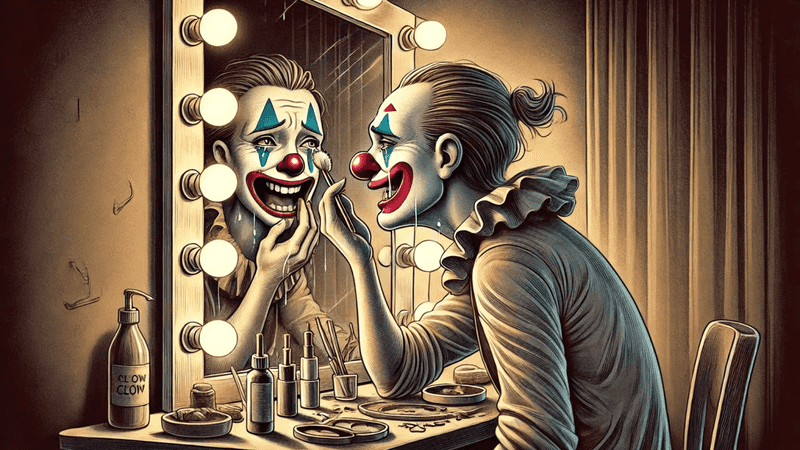A verdade é a seguinte: being hard to love or trust isn’t a personality flaw—it’s often a scar, and some days it burns like heck.
Maybe you’re tired of fighting for connection, or maybe you built walls so high even you can’t see over them anymore. If you’ve ever wondered why relationships feel like a minefield and trust seems out of reach, first thing to know is that this isn’t about shame.
It’s about clarity, honesty, and finally understanding the real reasons, straight from psychology, that make loving (and trusting) so darn hard.
1. You Guard Your Vulnerability Like a Secret
Do you notice how you never really let anyone see all of you? There’s always a part you keep tucked away, locked up tight. It’s not because you want to be mysterious—it’s because too much honesty once got you hurt.
Letting someone close means risking the sting of disappointment or betrayal—so you keep the best and worst parts hidden. People sense it, that distance, and sometimes it reads like indifference.
Truth: vulnerability is terrifying when the world already felt unsafe. But hiding your heart doesn’t stop it from aching; it just means you ache alone. The hardest part isn’t letting someone in—it’s believing they’ll stay after they see the real you.
2. You Notice Every Flaw—Especially Your Own
Perfectionism isn’t about being perfect. It’s about feeling never good enough—so you spot every mistake, every awkward pause, every missed text. You judge yourself before anyone else can.
But here’s the kicker: when you scrutinize yourself, you end up scrutinizing others too. That hyper-focus on flaws doesn’t lead to intimacy; it breeds anxiety and distance.
It’s exhausting, right? You’re always editing yourself, double-checking, waiting for someone to call you out. No wonder it’s hard to relax in love—hyper-vigilance is the opposite of feeling safe.
3. You Dodge Emotional Conversations Like Traffic Jams
Big feelings make your skin crawl. Someone asks, “Can we talk?” and your heart pounds like you’re about to get in trouble. Maybe you switch the topic or crack a joke to lighten the mood.
It’s not that you don’t care; you just learned that deep talks end with someone crying, slamming doors, or turning cold. Emotional honesty feels like standing in the open during a storm—with no umbrella.
So you swerve. You keep it surface-level. But missing those hard conversations means missing real connection. People don’t know what you’re holding inside—and sometimes, neither do you.
4. You Hold Grudges Like They’re Armor
Forgiveness sounds nice, but it never came easy. Maybe you remember every slight, every forgotten birthday, every cold shoulder. Letting go feels like letting someone get away with it.
The truth is, grudges keep you safe… or so you think. They build an invisible wall, and soon you’re on one side and everyone else is on the other. What you end up protecting most is your loneliness.
Those old wounds get heavy. Carrying them means you never get to be light. At times, the wall you built starts to look more like a cage than a shield.
5. You Fear Abandonment More Than You Admit
You know the feeling—waiting for the other shoe to drop. Every good moment is shadowed by anxiety: will they leave, too? You test people, push them away, or keep them at arm’s length just in case.
This isn’t drama; it’s a learned reflex from people who left when you needed them most. You build a backup plan for every connection, ready to retreat at the first sign of trouble.
However, always preparing for goodbye means you rarely settle into hello. That fear of abandonment writes a script you can’t escape—and love feels temporary, even when it isn’t.
6. You Don’t See How You Come Across
You didn’t mean to sound cold, or seem distant, or make that joke that hit too hard. But you did—because you didn’t see it coming. Self-awareness isn’t your strong suit, especially when you’re stressed.
Maybe you replay old conversations and realize too late what went wrong. Or sometimes, you never see it at all, and people just drift away. It’s confusing and a little unfair.
Not seeing your own impact means you miss out on repair. Relationships need tuning—if you’re only listening to your own station, the signal gets lost.
7. You Cling To Control When Things Feel Uncertain
When life felt out of control, you learned to clamp down—on details, routines, other people. Maybe you boss everyone around or micromanage every outing, not because you want power, but because chaos scares you.
Control gives you the illusion of safety when your trust is shaky. But it’s lonely at the top of a tower built out of checklists and rules. Other people start feeling like wild cards, too risky to let in.
Occasionally, letting go feels like standing on a ledge. Trust means allowing some mess, some surprise, some real life—and that’s scarier than it sounds.
8. You Value Independence Like Oxygen
Some people crave closeness; you crave air. You pride yourself on doing things alone, making your own money, sleeping just fine in an empty bed.
There’s strength in independence. But at times, that pride is really a shield against needing anyone at all. You worry that leaning on someone is weakness.
The double-edged sword: independence keeps people from hurting you, but it also keeps them from loving you. It’s hard to share life when you’re afraid of losing yourself.
9. You’re Suspicious of Good Intentions
Compliments feel like traps. Kindness makes you squint, waiting for the catch. If someone does something nice, you scan for strings attached.
That suspicion isn’t paranoia—it’s the residue of past experiences where “nice” meant manipulation. You learned that trust is something people use up, not something they earn.
So you keep your gratitude cautious, and your doors locked. The flip side? Real generosity bounces off your walls, never really landing, never really nourishing you.
10. You Mistake Intensity for Intimacy
Fast sparks, wild chemistry—that’s always been your comfort zone. You chase the rush, the late-night talks, the intense arguments that end in passionate apologies.
But real intimacy isn’t about fireworks. It’s about slow reveals, awkward silences, building trust brick by brick. Intensity is thrilling, but it fades. What’s left is the stuff that scares you: softness, patience, quiet knowing.
Sometimes, you mistake drama for depth. You crave the high, but you rarely settle long enough to build a foundation. Love feels like a roller coaster you can’t seem to step off.
11. You Use Humor to Deflect Pain
It is your passport through awkward territory. You turn pain into punchlines before anyone else can notice you’re hurting. It’s easier to laugh than to explain why you’re scared.
Nobody expects the class clown to feel lonely. But in certain moments, the jokes run out and the room feels quiet—and so do you. Being the funny one comes with a side of invisibility.
You’d rather make people laugh than make them worry. On the other hand, hiding behind humor means your real needs rarely get met. The mask is clever, but it’s still a mask.
12. You Compare Every Relationship to the Worst One
Your relationships come with ghosts. When someone gets close, you remember the time someone else let you down. Every fight, every silence, gets measured against an old heartbreak.
It’s not fair, but it’s real. Your mind keeps score, ready to shout, “See? Here we go again.” New people pay for old pain, and you end up bracing for impact before anything actually goes wrong.
You want a fresh start, but your guard dog mind won’t forget. The past writes scripts for the present—and it’s hard to believe in happy endings with so many unfinished stories.
13. You Struggle With Boundaries—Too Rigid or Too Loose
Boundaries are supposed to keep you safe, but you never learned the right balance. Either you keep people out completely, or you say yes when you mean no—then resent it later.
Maybe you let people overstep and end up feeling used. Or you slam the door so hard nobody bothers knocking. Neither way feels good, but you can’t quite find the middle ground.
Healthy boundaries are a work in progress. If you’re always guessing where the line is, it’s no wonder trust gets blurry—and closeness feels like a risk.
14. You Replay Mistakes on a Loop
Regret is your nightly visitor. You scroll through old messages, replay arguments in your head, wish you said something different—or nothing at all.
You think, “If only I hadn’t screwed up, maybe things would be better.” That guilt doesn’t help you heal; it ties you to the past. You punish yourself long after everyone else moves on.
Holding onto mistakes makes it hard to trust anyone, including yourself. If you can’t forgive your own errors, how can you trust others to forgive you?
15. You Seek Reassurance but Struggle to Believe It
You ask for proof, again and again: “Do you still care?” “Is everything okay?” The answers come, but relief never lasts. It’s like pouring water into a bucket with a hole.
It soothes you for a second, but old doubts creep in. You wonder if they mean it, if they’ll change, if you’re just too much. Needing certainty becomes exhausting for both sides.
Trust is fragile when you never got steady love. You want to believe, but your doubts are louder—and it’s hard to lean into comfort you never learned to believe in.
16. You See Love as Conditional
Love felt like something you had to earn. Maybe it depended on being useful, agreeable, or successful. So you learned to measure your worth by what you could do, not who you are.
Unconditional love sounds like a fairy tale. When someone loves you for no reason, you wonder if they’re faking it—or if they’ll take it away the moment you mess up. You keep trying to prove yourself, even when no one’s asking.
That feeling of being on trial never really fades. Relationships feel like work, not rest. It’s hard to let love in when you wait for the other shoe to drop.
17. You’re Drawn to Emotional Distance
You say you want closeness, but you’re drawn to people who keep you at a distance. Maybe it feels easier—less risk, less mess. You gravitate toward the emotionally unavailable.
It’s a dance you know well: wanting more, getting less, blaming yourself for the gap. You chase after crumbs and call it a feast. Real intimacy feels confusing, almost alien.
You end up choosing what’s familiar, not what’s good. The chase is safer than the catch. But longing for more never made the ache go away—it just kept you moving.
18. You See Conflict as Catastrophe
Even the smallest disagreement feels huge. Raised voices, sharp words, or even a sigh can send you into panic mode. Maybe you freeze, shut down, or blurt out something you regret.
You learned early that conflict meant danger—maybe it led to silence, slamming doors, or worse. So you avoid it, or try to fix everything immediately so it doesn’t get worse.
But avoiding conflict means nothing gets resolved. Trust can’t grow when honesty feels unsafe. Some truths only come out after the storm has passed, but you never stick around long enough to see the sun.



















